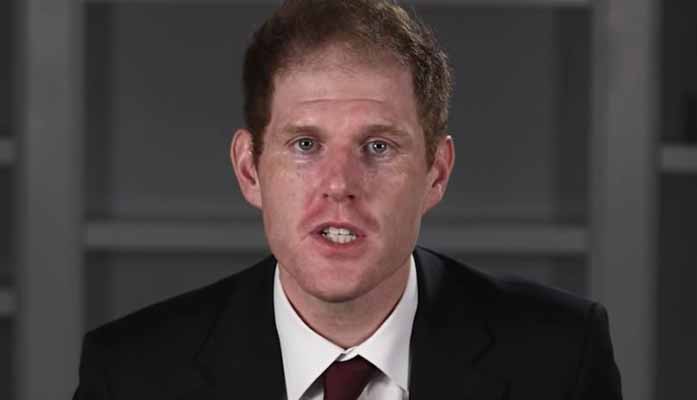
by Corinne Murdock | Jun 20, 2023 | News
By Corinne Murdock |
Uber will give passengers a 40 percent discount for using electric or hybrid cars rather than gas cars.
The discount announced earlier this month is available for passengers traveling to and from Phoenix Sky Harbor Airport, which established a “Green Curb” for the initiative. Electric or hybrid cars will be marked as “Uber Green” or, for the more expensive ride types, “Uber Comfort Electric.” The discount applies to the latter.
In a press release, Phoenix Mayor Kate Gallego praised the airport as a leader in sustainability. Gallego further expressed gratitude that Uber had chosen the city to lead on their initiative.
“Phoenix Sky Harbor International Airport is a leader in sustainability, and this new partnership is another example of how our airport remains on the cutting edge of every aspect of the passenger experience,” said Gallego. “I’m proud that Uber has chosen to bring this first-of-its kind initiative to Phoenix, and I look forward to supporting this innovative partnership!”
Joining Phoenix Sky Harbor Airport in establishing a “Green Curb” is the Portland International Airport in Oregon, the London Heathrow Airport in England, and the Madrid Barajas International Airport in Spain.
However, other airport locations won’t offer as steep of discounts as the one given in Phoenix. At London Heathrow Airport, the discount only amounts to 10 percent.
This latest initiative by Uber is part of the corporation’s plan to achieve zero emissions by 2040, and to eliminate unnecessary plastic waste from deliveries by 2030. In addition to the discounted fare for electric travel, Uber will inform riders of their emissions usage, establish a carsharing network, expanding rentable bikes, establishing electric car charge accessibility, and advising UberEats customers of green packaging options.
Sustainability may also be taking the form of driverless cars: last month, Uber announced that it had teamed up with artificial intelligence ridership service Waymo. The initiative will begin in Phoenix, where driverless cars and freight transport have been tested in recent years.
Waymo debuted driverless vehicles in downtown Phoenix last August.
The coordinated effort between the city of Phoenix and corporations like Uber to increase electric car usage is similarly playing out at the state and national levels. The Arizona Department of Transportation (ADOT) has begun developing a statewide network of electric vehicle charging stations, using seed funding from the Biden administration’s National Electric Vehicle Infrastructure (NEVI) Formula Program.
Arizona will receive $76.5 million from the federal government over the next five years to establish electric vehicle charging stations along roads designated as alternative fuel corridors (AFCs). Arizona’s current and proposed AFCs according to its Electric Vehicle Infrastructure Deployment Plan follow all the major interstate highways running through the state.
The Federal Highway Administration approved Arizona’s plan last September. Each charging station will be located within one mile off of the designated highway, with at least four EV fast chargers. A full charge takes the average EV about 20-30 minutes. Each charging station — except for two — will be placed 50 miles apart. ADOT funding won’t be used to construct or maintain the charging stations. These charging stations will be privately owned. The private owners will put up 20 percent of the costs to construct the stations, with the federal government paying 80 percent.
Corinne Murdock is a reporter for AZ Free News. Follow her latest on Twitter, or email tips to corinne@azfreenews.com.

by Daniel Stefanski | Jun 19, 2023 | News
By Daniel Stefanski |
A Republican State Senator is outraged after the Democrat Attorney General issued a recent response to a legislative inquiry about prevailing wage ordinances.
On Thursday, Democrat Attorney General Kris Mayes answered a 1487 complaint from Senator Catherine Miranda, who had previously asked if “a city may enact a prevailing wage ordinance that requires contractors on municipal public works contracts to pay their workers no less than the wage rates that prevail for their trade in their geographic location.”
Mayes affirmed that “a city may regulate the minimum wages paid within its geographic boundaries under Arizona Revised Statutes $ 23-364(1), so long as those wages are not less than the statewide minimum wage.” The attorney general added that “this authority includes the ability to require that employees of contractors on local public works projects be paid not less than the prevailing wage.”
This reply from Attorney General Mayes attracted the attention of one Republican lawmaker in particular, Senator T.J. Shope. The legislator took to Twitter to express his displeasure with the state’s top cop, writing, “This is a completely outside of the law interpretation by Attorney General Kris Mayes. If this were legal, why have the unions run bills at the Legislature every year to make prevailing wage legal, including a bill I once ran? I don’t have a problem with cities entering in to contracts with labor per se but do it the right way AND legally. My hope is a lawsuit will be filed immediately to challenge this ILLEGAL opinion by the AG. The AG should have run for Legislature if she wanted to enact law.”
Senator Shope may have been upset with Mayes’ opinion, but others around the state were not. Phoenix Councilwoman Laura Pastor tweeted, “Labor workers deserve to be compensated for their work. For years, I have consistently supported and pushed for prevailing wage – and I will continue to do so.”
Phoenix Vice Mayor Yassamin Ansari wrote, “Attorney General Mayes’ opinion is clear: cities may enact a prevailing wage ordinance to ensure that workers are paid fairly and competitively. I look forward to voting YES (again) for a strong Phoenix policy by the end of this year.”
Ansari’s comment was referencing a back-and-forth saga over a prevailing wage ordinance in the City of Phoenix earlier this year. In March, five members of the City’s Council voted to approve the Prevailing Wage Ordinance for City Projects to “ensure that (Phoenix’s) development growth is match with the skilled labor (the city) urgently needs when (Phoenix) invests in the growth of (its) communities.”
This action from Phoenix led to the threat of litigation from the Goldwater Institute, which sent an April letter to the Phoenix City Council to “express serious concerns” about the passage of the Ordinance, warning that if “the enacted version of the ordinance regulates matters that are expressly pre-empted by state law, it exposes the City to a high risk of litigation.” After the first Phoenix Council vote, there was a change in two seats, leading to another vote by the Council to repeal the Ordinance.
Mayor Kate Gallego was among the votes to repeal the Ordinance. She stated at the time, “I believe in doing things the right way, not the fast way, and that’s what we decided to do today. I am optimistic that we will find a path forward for better pay for construction workers while, at the same time, put sound policy on the books that survives legal challenges.”
Senator Miranda, the author of the 1487 complaint that generated Mayes’ opinion, seemed to have officials like Gallego in mind when she posted, “No hiding behind the fact it might be illegal. It’s not. Kris Mayes has spoken, “If two conflicting statutes cannot operate contemporaneously the more recent specific statute governs over [an] older more general statute.”
Daniel Stefanski is a reporter for AZ Free News. You can send him news tips using this link.

by Daniel Stefanski | Jun 19, 2023 | Economy, News
By Daniel Stefanski |
An Arizona lawmaker is calling out Governor Katie Hobbs for rising gas prices.
On Friday, Senator Jake Hoffman issued a press release, which highlighted “disturbing details…over what Katie Hobbs knew about Arizona’s fuel supply, and the fallout of crippling gas prices from her inaction, after concerns were raised over a major shortage.”
Hoffman’s release originated from reports that a letter had been sent to Hobbs in March by independent petroleum refiner HF Sinclair, warning the state’s chief executive “of a critical supply shortage in Arizona due to an unexpected equipment failure stopping the production of ‘Cleaner Burning Gasoline’ (CBG) required by the Biden Administration in Maricopa County, as well as parts of Pinal and Yavapai Counties.” Hoffman revealed that HF Sinclair had “asked Hobbs to seek a waiver on that requirement from the U.S. Environmental Protection Agency, but the Hobbs Administration denied that request, baselessly claiming the EPA wouldn’t approve it.”
The state senator put Governor Hobbs on blast for this inaction, asserting that her constituents would pay a literal price for this decision: “Katie Hobbs’ incompetence as Arizona’s Governor continues to take center stage, and hardworking Arizonans are paying the price for it. The average price for a gallon of gas right now in Maricopa County is a full $1 higher than the national average. This is extra money that could help with groceries, medications and other necessities many of our taxpayers are having a difficult time affording because of the Biden Administration’s reckless policies leading to historic inflation. Hobbs had an opportunity to do the right thing by requesting this waiver to allow prices at the pump to drop, but she instead chose to selfishly play political games with the livelihoods of our citizens by refusing to back down from her woke ‘green’ agenda to appeal to her far-Left base. Katie, this is not California. In Arizona, we put families first.”
Senator Hoffman’s release shared part of the letter from HF Sinclair, where the refiner argued that Hobbs would be within her right to seek the waiver from the EPA, writing, “Pursuant to 42 U.S.C. § 7545(c)(4)(C)(ii), EPA may temporarily waive a control or prohibition respecting the use of a fuel when extreme and unusual fuel supply circumstances prevent the distribution of an adequate supply to consumers. EPA may grant such a waiver where such circumstances are the result of a natural disaster, Act of God, refinery equipment failure, or another event that could not reasonably have been foreseen or prevented, and where doing so would be in the public interest (e.g., when a waiver is necessary to meet projected temporary shortfalls in fuel supply in a state or region). Such circumstances presently exist in Arizona.”
The Hobbs’ Administration may not have been willing to pursue this waiver to help Arizonans at the gas pumps – something that can’t be said about the Biden Administration, which had another opportunity to lower fuel prices earlier this year. Last month, the EPA issued “an emergency fuel waiver to allow E15 gasoline – gasoline blended with 15% ethanol – to be sold during the summer driving season.” According to the EPA, “the waiver will help protect Americans from fuel supply crises by reducing our reliance on imported fossil fuels, building U.S. energy independence, and supporting American agriculture and manufacturing.”
Daniel Stefanski is a reporter for AZ Free News. You can send him news tips using this link.

by Corinne Murdock | Jun 18, 2023 | News
By Corinne Murdock |
Rep. Paul Gosar (R-AZ-09) introduced a bill to terminate the decade-old national emergency over Libya.
Former President Barack Obama instituted the national emergency in February 2011. Gosar pointed out that despite periodic congressional reviews of presidents’ national emergencies every six months, the Libyan declaration hadn’t been reviewed.
“The people of Libya deserve to live in a manner of their choosing without the prospect of U.S. bombings, attacks, or color revolutions thrust upon them by corrupt and misguided American agencies – none of whom are acting with Congressional approval,” said Gosar. “The true situation is that no group or person in Libya currently poses a threat to our national security. Furthermore, even if there was some hostility, none of it rises to the level of an ‘unusual and extraordinary threat to national security and foreign policy.’”
Under Obama’s executive order declaring the emergency, all ties were cut with senior officials and political leaders of the Libyan government, especially allies and family of former Colonel Muammar Qadhafi (Gaddafi).
Gaddafi was assassinated eight months after the emergency declaration. Yet, Gosar pointed out that the continued extension of Obama’s order cited Gaddafi as a reason for the necessity of the declaration.
“Almost hilariously, the extended national emergency related to Libya continues to cite Muammar Qadhafi as the reason for the declaration, even though Qadhafi has been dead for almost 12 years,” said Gosar. “You can’t make this stuff up.”
Gaddafi ruled over Libya for over 40 years, abolishing the monarchy and establishing an authoritarian regime enforced by a police state. Gaddafi immediately began insulating the country from outside influences, shutting down British and American military bases. He then launched a cultural revolution in the 1970s that did away with existing laws, communism, conservatism, fascism, atheism, capitalism, and the Muslim Brotherhood; armed citizens; and established an Islamic state.
Gaddafi’s end came through the Arab Spring color revolution that arose in 2010 throughout Asia and Africa, affecting Tunisia, Egypt, Yemen, Syria, and Bahrain in addition to Libya.
At the time, Hillary Clinton served as the secretary of state. A year after Gaddafi’s assassination, on Sept. 11, the Benghazi terror attack occurred. Clinton took responsibility a month after the attacks. There remains controversy over whether Clinton gave the “stand-down order” to withhold a Special Operations team from Benghazi.
U.S. Agency for International Development (USAID) reports that the U.S. government has invested over $900 million in development, security, and humanitarian assistance in Libya. From 2019 to 2024, the USAID will spend over $23.3 million to establish economic stability in Libya.
According to the latest installment of the World Military Expenditures and Arms Transfers (WMEAT), the U.S. military and armed forces expenditures from 2012 to 2019 totaled $520 billion (based on market exchange rate conversion with a base year of 2019). However, these totals may be completely inaccurate: the WMEAT data discloses that these totals were “extremely uncertain.”
The Biden administration ended WMEAT last year. The transparency practice had been in place since 1974.
Corinne Murdock is a reporter for AZ Free News. Follow her latest on Twitter, or email tips to corinne@azfreenews.com.

by Corinne Murdock | Jun 18, 2023 | News
By Corinne Murdock |
Maricopa County Recorder Stephen Richer mocked a candidate for asking him about electronic petition eligibility, something which falls under the recorder’s knowledge.
The candidate, Rob Canterbury, is running for the District 4 seat in the Maricopa County Board of Supervisors (BOS). Canterbury is a 20-year Navy veteran who served in the Iraq War, and currently the Arizona GOP sergeant-at-arms.
Canterbury asked Richer when Maricopa County candidates would be eligible for electronic petitions. Richer responded with “lol,” followed up with a criticism that Canterbury wasn’t a suitable candidate for the BOS.
“That’s something the position you’re running for controls,” said Richer. “Maybe this is a pretty good indicator about how much you don’t know about the process before you talk about it?”
Richer didn’t offer an answer to Canterbury’s question in his initial reply.
Canterbury informed Richer that he reached out to ask because he’d learned conflicting information about electronic petition eligibility from another county-level candidate.
This wasn’t the first time that Richer poked fun at the expense of those kept at a distance from government knowledge. Last September, Richer tweeted a gif calling himself “fancy,” in a retweet response to then-Arizona Republic reporter Jen Fifield remarking that Maricopa County’s new press pass requirements would prevent The Gateway Pundit, a controversial outlet, from engaging in journalism.
Maricopa County then denied a press pass to a reporter from The Gateway Pundit on the basis that the outlet wasn’t objective or apolitical enough for their standards.
A month after launching the press pass system, the county launched a disinformation center and further limited press access on county property.
Around the time that The Gateway Pundit sued over the county’s exclusionary treatment, Richer deleted his tweet. The Ninth Circuit Court ruled in December that Maricopa County’s press pass admissions process was unconstitutional.
“Permitting ‘truth’ to be determined by the County violates our foundational notions of a free press,” stated the court.
Richer told AZ Free News that he didn’t have a specific reason for deleting the tweet. Rather, Richer said that he occasionally deletes posts that he dislikes or deems to be unproductive in hindsight.
Maricopa County paid a $175,000 settlement to the outlet in April.
Corinne Murdock is a reporter for AZ Free News. Follow her latest on Twitter, or email tips to corinne@azfreenews.com.

by Corinne Murdock | Jun 17, 2023 | Education, News
By Corinne Murdock |
Arizona State University (ASU) advocated for keeping pornographic LGBTQ+ books in K-12 classrooms.
The university featured commentary from professors on the subject as part of a feature story dedicated to Pride Month issued last week.
“In June, Pride Month is a time to promote inclusivity, raise awareness and celebrate the contributions the LGBTQ+ community has made to society,” read the article.
ASU classified an explicit graphic novel, “Gender Queer: A Memoir,” as an example of a banned book that qualified as a source of knowledge. The book details a wide variety of gay sexual acts and fantasies carried out by minors and adults.
English professor Gabriel Acevedo, who focuses some of his teaching on expanding students’ knowledge of LGBTQ+ literature, said that banning these kinds of books would limit students’ intellectual growth.
“By limiting that knowledge or not providing access to it, we are underestimating the student’s abilities to make choices that fit their lives,” said Acevedo. “We learn by reading. We learn by engaging these topics. If we don’t know these topics (because) we don’t engage with these materials, are we learning?”
School of Social Transformation Justice and Social Inquiry professor Madelaine Adelman said that LGBTQ+ content in K-12 schools is important for fostering acceptance.
“Why would they want to be in a place where they don’t feel accepted? Why would they want to continue their education in that space?” said Adelman.
Adelman co-founded the Phoenix chapter of the Gay Lesbian and Straight Education Network (GLSEN) in 2002 and served as its co-chair until 2013. Adelman was also a founding member of GLSEN’s National Advisory Council in 2004, departing the council in 2013. Adelman joined GLSEN’s Board of Directors in 2010.
The GLSEN Phoenix chapter appears wherever controversy over sexualizing children occurs. Recurring issues arise with GLSEN’s network of Gay-Straight Alliance or Gender-Sexuality Alliance (GSA) clubs in schools. GLSEN Phoenix also conducts LGBTQ+ affirmation training that schools have required teachers to attend, such as Cocopah Middle School.
In December 2021, GLSEN Phoenix urged teachers to create secret libraries to hide controversial or banned content.
Over the last few years, GLSEN has spoken out against bills to protect minors, such as last year’s ban on gender transition surgeries.
The Arizona Department of Education (ADE) had a working relationship with GLSEN under former Superintendent Kathy Hoffman.
ASU and GLSEN have numerous other ties, including the program manager for the Transgender Education Program (TEP), Cammy Bellis. Her work at ASU over the past decade concerned establishing greater awareness and normalization of LGBTQ+ lifestyles in K-12 environments.
One of the GLSEN Phoenix board members who encouraged the creation of secret libraries in schools, Andi Young, recently received her master’s degree in social work from ASU. Young is currently the co-chair of the board, and serves as a therapist/licensed master social worker with Beckstein Behavioral Health. Young describes herself as an “LGBTQ-affirming therapist” that assists teenagers and adults in living their “full, true, authentic selves.”
Corinne Murdock is a reporter for AZ Free News. Follow her latest on Twitter, or email tips to corinne@azfreenews.com.






